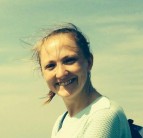FREE REGISTRATION: https://www.eventbrite.co.uk/e/defining-effective-digital-history-mentorship-tickets-20412994817
15 March 2016 (11am-6pm) – Cambridge UK
Digital History is historical work made possible by the use of computational tools to manipulate electronic resources in ways that go beyond everyday activities such as looking at those resources in a web browser, storing them on a computer, or writing about them in a word processor. For digital history to flourish we need to develop effective pathways for interested scholars to get involved. This one-day workshop brings together historians at different stages of their career and with different aptitudes in digital history, to develop a framework for effective and inclusive digital history mentorship. Come be part of something.
If you are new to digital history… this workshop will give an opportunity to share what you don’t know in a supportive environment, discover things you want to know, figure out how to get to the next stage, and define a form of digital history mentorship that includes everyone.
If you are experienced in digital history… you will get an opportunity to share what it was like to start out, nurture the next wave of digital historians, develop your ability to support future doctoral candidates in developing digital research skills, and contribute to making the field as inclusive as possible.
By the end of the day all attendees… will have co-authored and published a draft framework for inclusive mentorship in digital history, a vital step towards making digital research methods available to all historians. In order to test, iterate, and demonstrate the effectiveness of the framework, we hope to pair a small number of interested mentors and mentees during the workshop.
Organisers
 James Baker is a lecturer in digital history at the University of Sussex. He works with both digitised and born-digital archives, is interested how new and old research methods can be applied to those archives, and has led software skills training aimed at both historians and librarians that sought to capture needs and requirements in these domains. You can follow him on Twitter: @j_w_baker and email him at james.baker@sussex.ac.uk.
James Baker is a lecturer in digital history at the University of Sussex. He works with both digitised and born-digital archives, is interested how new and old research methods can be applied to those archives, and has led software skills training aimed at both historians and librarians that sought to capture needs and requirements in these domains. You can follow him on Twitter: @j_w_baker and email him at james.baker@sussex.ac.uk.
 Carys Brown is a PhD student at the University of Cambridge working on religion in eighteenth-century England. She is particularly interested in the interactions between public history and digital history, and is an editor of Doing History in Public. You can follow her on Twitter: @HistoryCarys and email her at clmb3@cam.ac.uk.
Carys Brown is a PhD student at the University of Cambridge working on religion in eighteenth-century England. She is particularly interested in the interactions between public history and digital history, and is an editor of Doing History in Public. You can follow her on Twitter: @HistoryCarys and email her at clmb3@cam.ac.uk.
 Adam Crymble is a lecturer of digital history at the University of Hertfordshire. He is interested in higher education policy, and has contributed policy articles to Inside Higher Education and University Affairs magazines. Adam is an editor of the Programming Historian. You can follow him on Twitter: @Adam_Crymble and email him at a.crymble@herts.ac.uk.
Adam Crymble is a lecturer of digital history at the University of Hertfordshire. He is interested in higher education policy, and has contributed policy articles to Inside Higher Education and University Affairs magazines. Adam is an editor of the Programming Historian. You can follow him on Twitter: @Adam_Crymble and email him at a.crymble@herts.ac.uk.
Banner Image Credit: Genève, Bibliothèque de Genève, Ms. fr. 180: Christine de Pisan, The Book of the City of Ladies
(www.e-codices.unifr.ch/en/list/one/bge/fr0180)